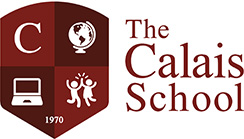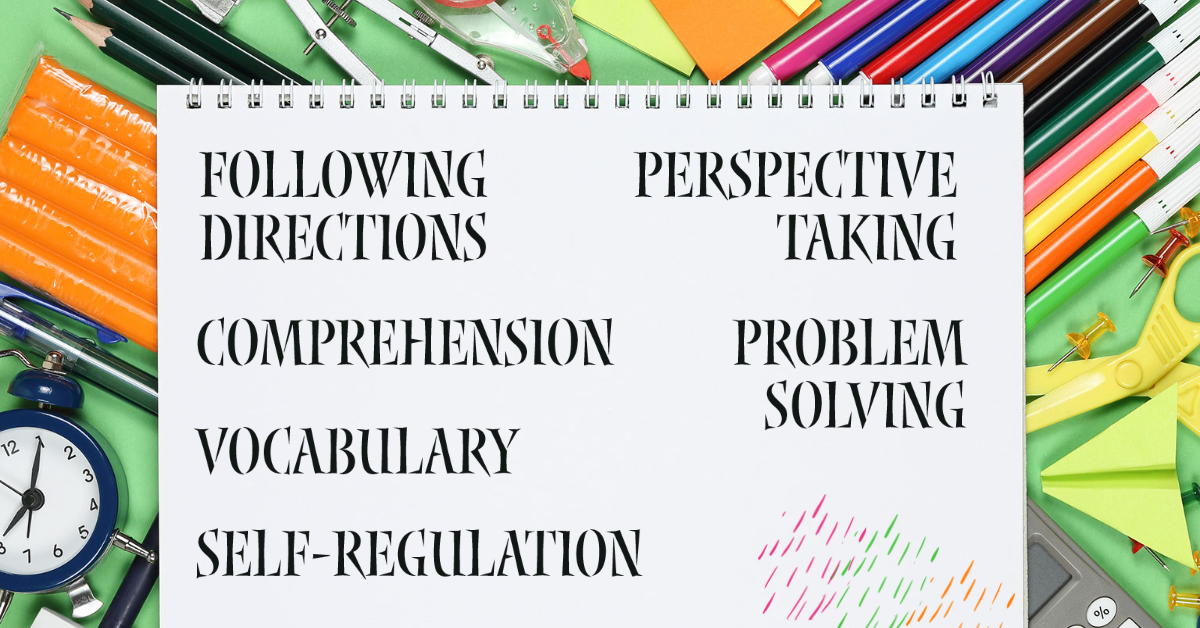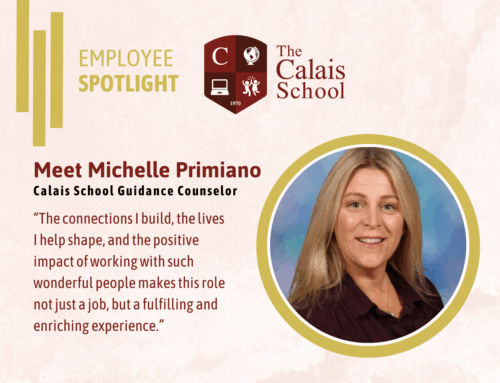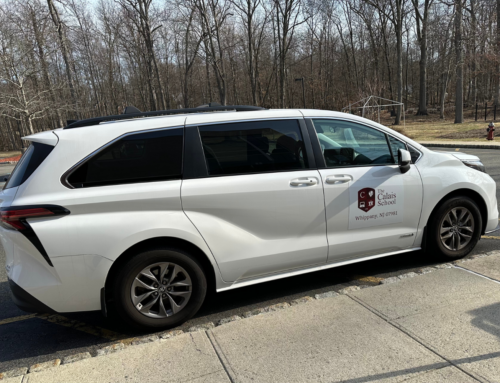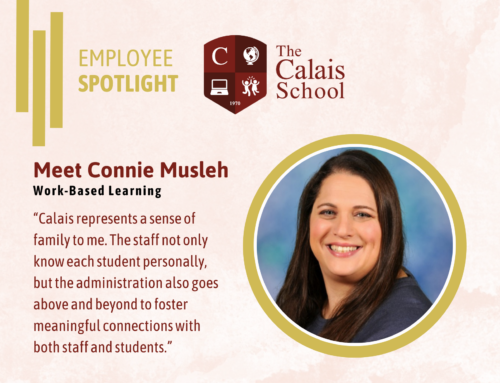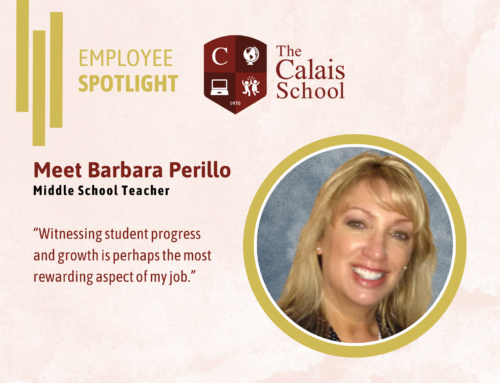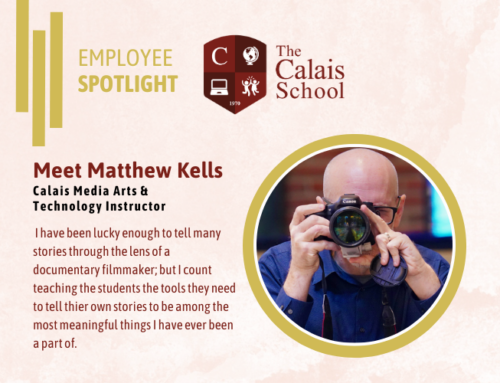For many people, the mention of speech and language therapy brings up the idea of learning to pronounce sounds correctly. At The Calais School, however, speech and language therapy has a much broader scope that includes self-regulation, comprehension, and other valuable skills.
Ms. Mara Friedman, one of Calais’s Speech-Language Pathologists (SLPs), works closely with Calais faculty and counseling team members to support students with special needs in developing key communication and comprehension skills.
Social-emotional skills, or pragmatics, are a major emphasis in speech and language therapy at Calais. “Our students struggle with talking about their feelings and using words to express difficulties they have with others,” Ms. Friedman explains. “We address problem solving, perspective taking, and naming strategies to use during these situations.” Consider, for example, a student who is struggling to express his or her frustration to a distracting classmate. With support, this student can apply skills learned in speech sessions to communicate assertively rather than lose control or not speak up at all.
Ms. Friedman has also worked with students on key academic skills, including vocabulary development, reading and auditory comprehension, and following directions. Students often use classroom assignments, such as textbook readings and vocabulary words, to “target [their] IEP goals and objectives in a functional manner.” Even if the assignment was already completed, review and repetition “[increases] understanding and retention of concepts and class lessons.” By completing classroom work in speech sessions, students can learn helpful strategies that will increase their academic confidence and decrease frustration with assignments in the future.
In the classroom, our SLPs help students practice academic and social-emotional skills related to communication. These push-in sessions are valuable opportunities for students to carry-over skills into a real-world environment. “Teachers and SLPs have different — but complementary — skills and knowledge,” Ms. Friedman clarifies. “We are not there to teach the lesson. Our intention is to support the lesson to help generalize the skills outside the regular classroom.”
Overall, the development of skills goes two ways — from the classroom to the speech room, then back into the classroom. For instance, a student may blurt out answers in class and forget to raise his or her hand. In an individual speech session, the student may work with the SLP on recognizing this habit and remembering not to call out. Then, the student practices and applies the skill in the classroom with support from the SLP and the teacher.
Our SLPs will also work with an entire class sometimes, including students who may not have a need for speech and language services listed in their IEPs. Working as a group allows students to share ideas and support each other. Ms. Friedman has noticed that when students help each other strengthen their skills, it “results in both students feeling special and allows the ‘helping student’ to gain a sense of empowerment, thus increasing self-confidence.”
In our Upper School and 12 Plus program, speech-language therapy plays a major role in preparing students for employment and independent living. Students have worked with our SLPs both in the classroom and individually to gain communication skills pertaining to job interviews, customer service, self-advocacy, and more. Students also benefit from support and feedback in the moment through push-in sessions at on- and off-campus job sites and in the community.
At this stage, the teaching and application of skills is adapted to reflect the transition from school to work. For example, reading comprehension at this stage is often functional, focusing on real-world materials such as mall directories, bus schedules, and menus. With the higher expectations of the workplace and community, students also work on honing their communication and self-regulation skills to be professional and appropriate for public settings.
Learn more about related services at The Calais School, including speech and language therapy, on our website!
 973-884-2030
973-884-2030 